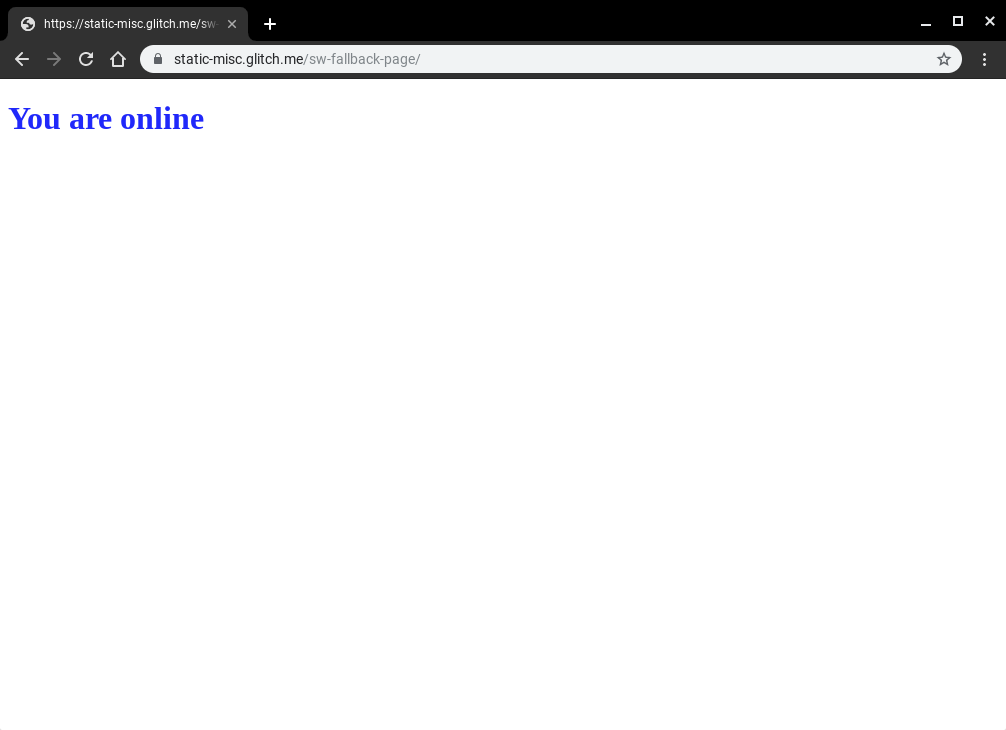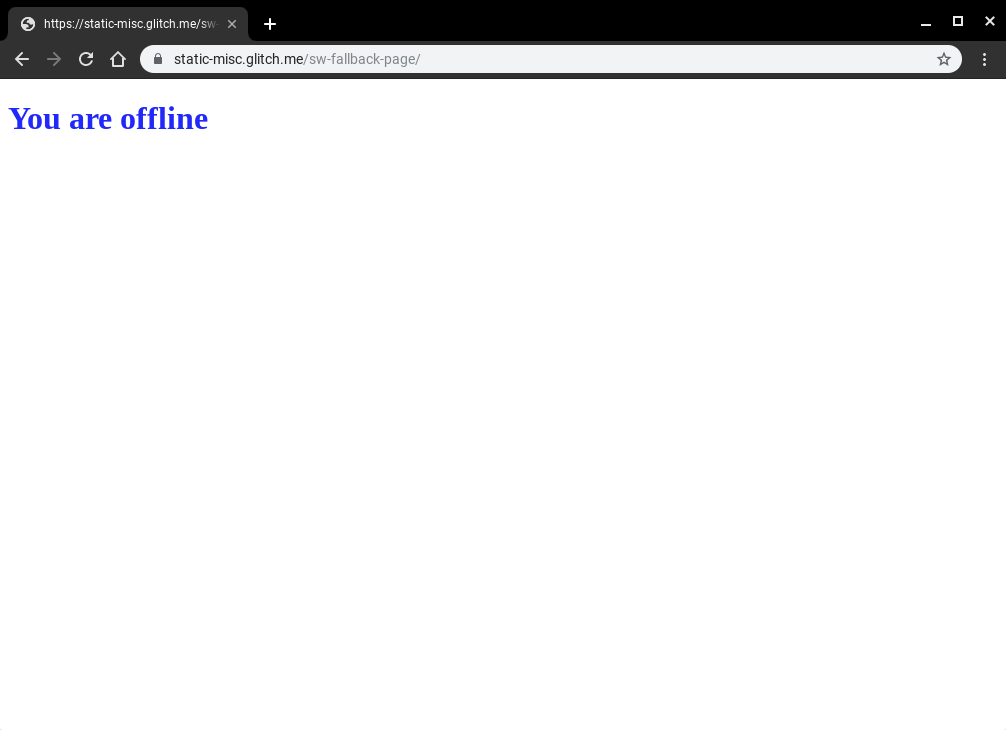Years ago, I did some research into how native applications responded to a lack of network connectivity. Whilst I've lost the link to the analysis (I could swear it was on Google+), the overarching narrative was that many native applications are inextricably tied to the internet that they just straight up refuse to function. Sounds like a lot of web apps, the thing that set them apart from the web though is that the experience was still 'on-brand', Bart Simpson would tell you that you need to be online (for example), and yet for the vast majority of web experiences you get a 'Dino' (see chrome://dino).
We've been working on Service Worker for a long time now, and whilst we are seeing more and more sites have pages controlled by a Service Worker, the vast majority of sites don't even have a basic fallback experience when the network is not available.
I asked my good chum Jake if we have any guindance on how to build a generic fall-back page on the assumption that you don't want to create an entirely offline-first experience, and within 10 minutes he had created it. Check it out.
For brevity, I have pasted the code in below because it is only about 20 lines long. It caches the offline assets, and then for every fetch that is a 'navigation' fetch it will see if it errors (because of the network) and then render the offline page in place of the original content.
addEventListener('install', (event) => {
event.waitUntil(async function() {
const cache = await caches.open('static-v1');
await cache.addAll(['offline.html', 'styles.css']);
}());
});
// See https://developers.google.com/web/updates/2017/02/navigation-preload#activating_navigation_preload
addEventListener('activate', event => {
event.waitUntil(async function() {
// Feature-detect
if (self.registration.navigationPreload) {
// Enable navigation preloads!
await self.registration.navigationPreload.enable();
}
}());
});
addEventListener('fetch', (event) => {
const { request } = event;
// Always bypass for range requests, due to browser bugs
if (request.headers.has('range')) return;
event.respondWith(async function() {
// Try to get from the cache:
const cachedResponse = await caches.match(request);
if (cachedResponse) return cachedResponse;
try {
// See https://developers.google.com/web/updates/2017/02/navigation-preload#using_the_preloaded_response
const response = await event.preloadResponse;
if (response) return response;
// Otherwise, get from the network
return await fetch(request);
} catch (err) {
// If this was a navigation, show the offline page:
if (request.mode === 'navigate') {
return caches.match('offline.html');
}
// Otherwise throw
throw err;
}
}());
});
That is all. When the user is online they will see the default experience.

And when the user is offline, they will get the fallback page.

I find this simple script incredibly powerful, and yes, whilst it can still be improved, I do believe that even just a simple change in the way that we speak to our users when there is an issue with the network has the ability to fundamentally improve the perception of the web for users all across the globe.
Update Jeffrey Posnick kinldy reminded me about using Navigation Preload to not have to wait on SW boot for all requests, this is especially important if you are only controlling failed network requests.
I lead the Chrome Developer Relations team at Google.
We want people to have the best experience possible on the web without having to install a native app or produce content in a walled garden.
Our team tries to make it easier for developers to build on the web by supporting every Chrome release, creating great content to support developers on web.dev, contributing to MDN, helping to improve browser compatibility, and some of the best developer tools like Lighthouse, Workbox, Squoosh to name just a few.
I love to learn about what you are building, and how I can help with Chrome or Web development in general, so if you want to chat with me directly, please feel free to book a consultation.
I'm trialing a newsletter, you can subscribe below (thank you!)




